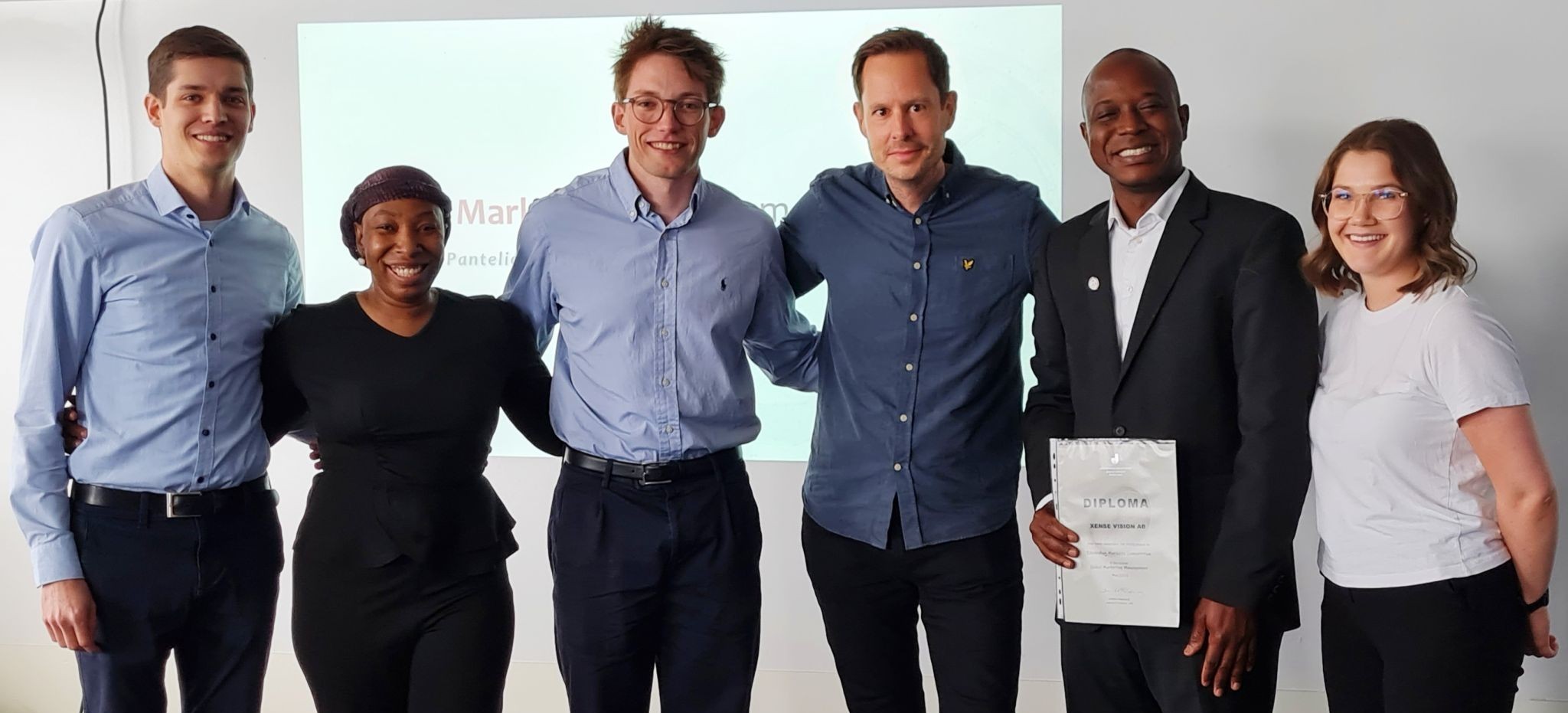Interview: Björn Crona, co-founder and COO of XENSE Vision on the successful collaboration with JIBS university students
During the spring of 2025, XENSE Vision collaborated with students from Jönköping International Business School (JIBS) to map out opportunities and challenges related to the company’s ongoing entry into the German market. Through the students’ systematic work, XENSE was able to identify specific cities where their solution has the greatest potential to improve traffic conditions, as well as map the key stakeholders responsible for ensuring a safe and efficient traffic environment. We checked in with Björn Crona, co-founder and COO to learn more about this successful win-win project that was awarded first place in the “Expanding Markets Competition” as it was presented to the university jury on 23 May 2025.
How did the idea of collaborating with university students emerge?
XENSE have a strong connection to Jönköping Science Park, where a business developer with roots in Germany mentioned that students from JIBS previously performed market studies as part of the course “Global Marketing Management”. We thought that would be an interesting idea and reached out to the Program Manager to see if any German speaking students were interested to work with us. As we prepare to expand to Germany this year with the Swedish-German Cleantech Platform at the core of our strategy, we see the project carried out with JIBS as a strong and timely addition to our efforts. Previously, we had thoughts about recruiting a German speaking student to facilitate easier communication with German stakeholders. We have always worked closely with for example KTH Royal Institute of Technology, School of Engineering at Jönköping University and others and enjoy the exchange with curious and bright visionary students who provide a refreshing, forward-thinking approach.
Tell us more about the project and the collaboration with the students!
The project stretched over 10 weeks’ time with follow-up meetings every other week. The students could ask questions, and we could give them insights into our focus and give them the opportunity to pick our brain on how a company, in a phase of rapid expansion approaches decision-making and prioritization. A real-life case study for the students and an inflow of fresh ideas empirical data for us. The group consisted of five students, two of whom were from Germany. It was an advantage to include German-speaking students, as this facilitated communication with German-speaking contacts and enabled them to perform research efficiently. Hopefully, we can come back for a second round to dig deeper into the data together! They truly did a great job and gave us many new perspectives.
Describe the outcomes!
We are very satisfied with the results. The students provided valuable insights into both the opportunities and the challenges we might face. They identified many potential obstacles that we can learn from and be mindful of going forward. Germany presents some unique difficulties, especially in terms of market entry, but the upside and specific opportunities are overruling the challenges by far. We were positively surprised by the strong advantages that the German market offers. The students identified smart, accessible ways to approach the market—some “low-hanging fruit”—that we can continue working on. For example, they pointed out an interesting customer segment: Germany’s 13,000 municipalities.
The students developed a model to rank these municipalities based on potential—considering factors such as their current traffic management initiatives, specific investments, and openness to more experimental types of procurement. This means that municipalities don’t necessarily require partnerships with large, established system providers; they may be open to testing new solutions from smaller newcomers.
How will you use the results? What are you hoping to achieve?
The students identified 39 particularly promising municipalities and managed to contact and interview several of them. XENSE is now continuing the outreach work based on these findings to present how they can benefit from our solution and how traffic can flow smoother in the respective areas. Hopefully, we can schedule virtual demo meetings before going on the delegation trip to North Rhein-Westphalia with the Swedish-German Cleantech Platform beginning of October. It would be great to follow up the virtual demos with meetings in person. The municipalities will be able to prepare better and decide what representatives benefit the most from joining the live demos.
XENSE Vision https://www.xensevision.com/
Jönköping International Business School https://ju.se/en/about-us/jonkoping-international-business-school.html
Science Park Jönköping https://sciencepark.se/
We are coming to North Rhein-Westphalia 6-10 October, read more about our delegation trip here.
Do you want to follow the journey of the group?
Follow SGCP on LinkedIn:
Swedish-German Cleantech Platform at linkedin.com

Photo: XENSE Vision